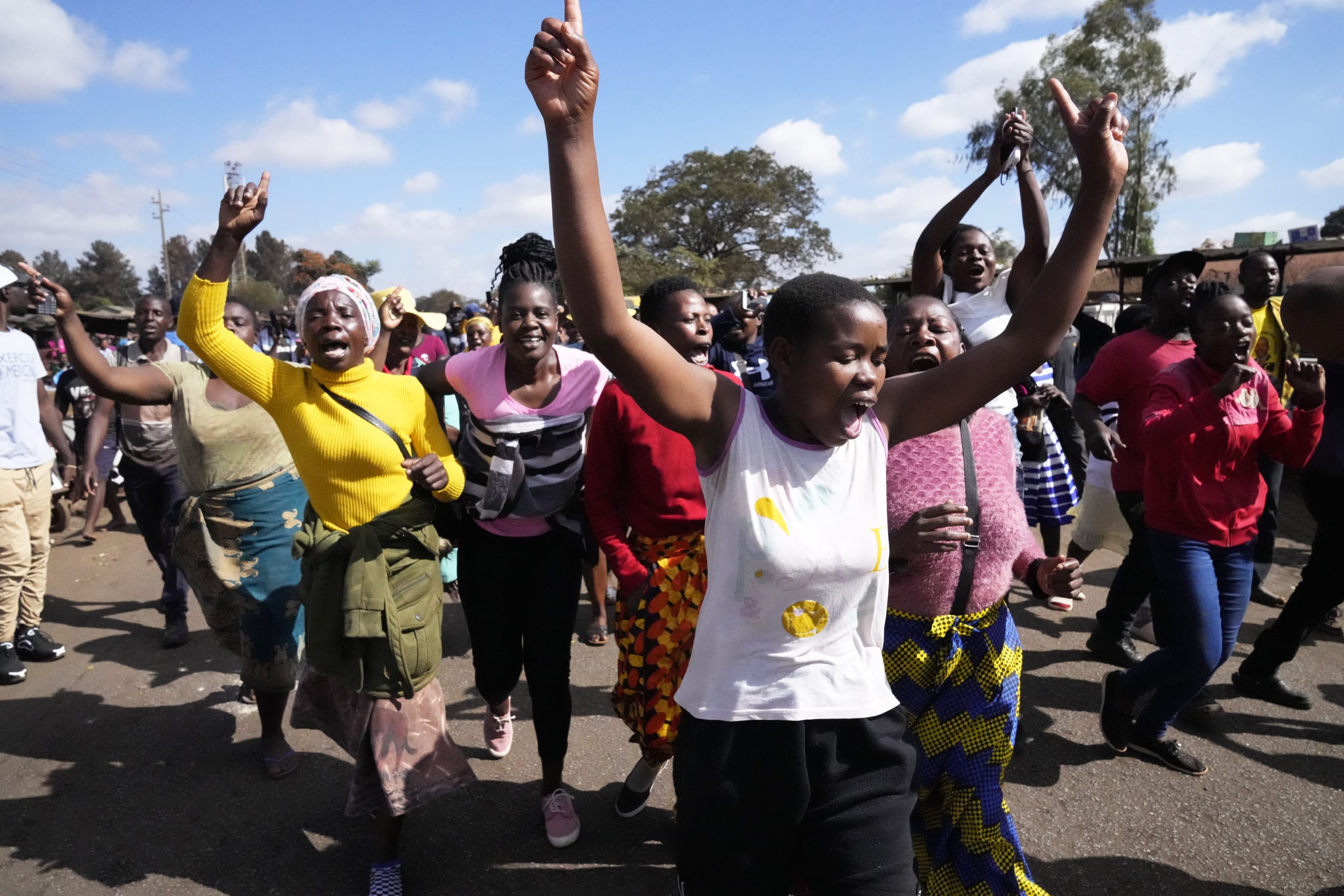We bring news that matters to your inbox, to help you stay informed and entertained.
Terms of Use and Privacy Policy Agreement
WELCOME TO THE FAMILY! Please check your email for confirmation from us.
Allegations of fraud, violence and harassment of opposition members have characterized elections held in Zimbabwe since independence from white minority rule in 1980.
Munyaradzi Mushawatu, an electrician in Zimbabwe’s capital, Harare, was both ecstatic and jittery after President Emmerson Mnangagwa announced recently that national elections would be held on Aug. 23.
“I have voted in every election since 1990. I can’t wait to make my voice heard. I am ready,” said Mushawatu. But the bravado turned to chagrin as he recalled how the country’s “skewed” elections environment has remained intact for decades.
“It’s only the election date that is new. The usual old obstacles remain,” said the 56–year-old father of three.
Allegations of fraud, violence and harassment of opposition members have characterized elections held in Zimbabwe since independence from white minority rule in 1980.
The 2018 elections were the first following a coup that replaced Robert Mugabe, Zimbabwe’s longtime autocratic ruler, with Mnangagwa, amid promises of reform.
But after a close-run contest, the Constitutional Court dismissed opposition leader Nelson Chamisa’s claims of vote-rigging.
Mnangagwa, an 80-year-old former enforcer and ally of Mugabe, is again expected to face a strong challenge from the 45-year-old Chamisa. The election will also decide the composition of the 350-seat parliament and close to 2,000 local council positions.
For many Zimbabweans, hope offered by the Aug. 23 elections is eclipsed by a realization that although Mnangagwa has tried to present himself as a reformer, prevailing conditions suggest that he is even more repressive than the man he helped remove from power.
The opposition and some human rights groups say the playing field has been tilted in the ruling party’s favor. They cite oppressive laws, arrests and detentions of opposition figures, bans of meetings, alleged violence, biased state media coverage and alleged voters’ roll irregularities — just as in previous elections.
In the spotlight is a bill recently passed by parliament but which must still be signed by the president in order to become law. The legislation calls for harsh punishments of up to 20 years in jail for “unpatriotic acts” such as attending a meeting with foreign agents where issues such as sanctions or the overthrow of the government are discussed.
The government defends the bill as necessary to protect “national interests.”
Many are skeptical.
Since Mugabe’s time, Zimbabwe’s ruling party has used sanctions imposed by the United States two decades ago over human rights violations as election campaign fodder — often accusing the opposition of conspiring with the U.S to keep the measures in place.
The bill has had “a chilling effect of silencing” dissent, said Zimbabwe Lawyers for Human Rights, or ZLHR, an NGO.
Provisions such as penalizing people “for merely attending a meeting where sanctions are considered” are “vague, lack certainty, are imprecise, and are thus prone to abuse by law enforcement,” said ZLHR.
Criticizing the president or the ruling ZANU-PF party already appears to be hazardous locally. ZLHR says it is providing free legal representation to dozens of people arrested or detained for “insulting” the president or for tweeting, singing or marching.
Another recurring bone of contention is the voters’ roll, which Chamisa described as “a perennial challenge.” Alleged irregularities include missing names of registered voters.
The Zimbabwe Electoral Commission has repeatedly dismissed allegations of colluding with the ruling party, and recently said voters’ roll irregularities would be resolved by Election Day.
Despite the odds, Chamisa says he sees a real chance. “Some say, are you to boycott the elections? We will not boycott … 2023 is a big moment, an opportunity for Zimbabweans to realize change,” he told reporters last week. It’s the first real test for his party, the Citizens Coalition for Change, which he formed in January last year, making a break from the country’s longtime opposition party, the Movement for Democratic Change.
Zimbabwean political commentator Alexander Rusero says Chamisa hopes that a strong showing in August will strengthen the new party’s credentials.
“The opposition genuinely believe they are being frog-marched into an election they are sure to lose,” said Rusero. “But remember it is a new political outfit. Elections will secure Chamisa’s party the legitimacy of being the most formidable opposition and get a seat at the table in case of any post-election political settlement,” he said.
Tensions are rising in the Southern African nation of 15 million people as the economy implodes under the weight of a debilitating currency crisis, sharp price rises, crippling electricity shortages, unemployment, corruption allegations and collapsing public health infrastructure.
The ruling party blames U.S sanctions and also accuses businesspeople of conniving to increase prices and ignite anger ahead of elections.
Mnangagwa and the government also deny allegations of violence and intimidation by ruling party activists and security forces and are promising a credible election.
“Nothing must be spared to ensure the environment is right and conducive for free, fair and peaceful elections in which the right to vote is available to all those eligible,” Mnangagwa wrote in his weekly column in the state-controlled Sunday Mail newspaper.
But some, like Mushawatu, the electrician, are not too sure.
“I will vote, but I am not convinced that we are in a new era,” he said.
TheGrio is FREE on your TV via Apple TV, Amazon Fire, Roku and Android TV. Also, please download theGrio mobile apps today!

